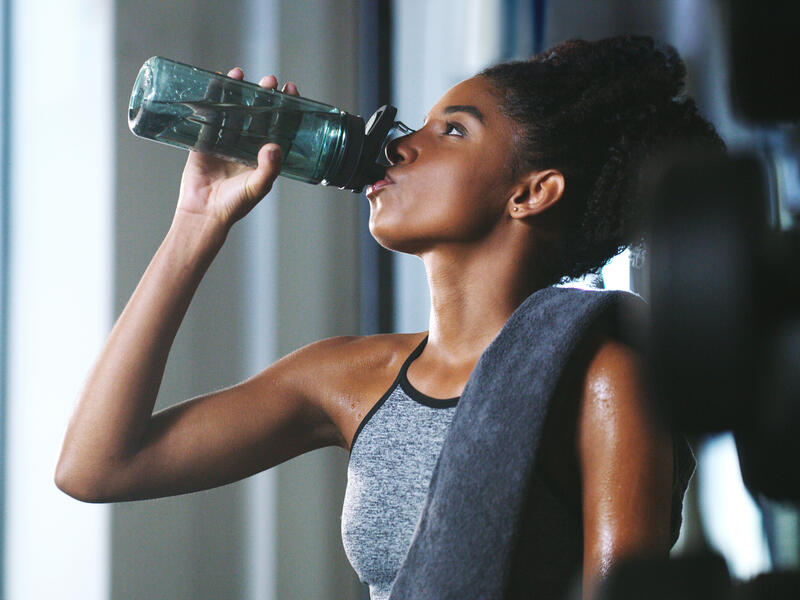Hydration is just as important as nutrition for athletes. You should hit the sweet spot between dehydration and over-hydration to perform at your best and healthiest.
Relying on your body to signal when you’re thirsty isn’t enough. By the time you feel thirsty, you’re already slightly dehydrated. Dehydration of any severity affects your athletic performance.
Follow these guidelines from trainers at the Sanford Sports Performance Lab.
Everyday hydration
Proper hydration starts before you hit the court, field or gym. Start off your training sessions or competitions with all the fluids you need to perform safely and at your best.
The best way to tell if you’re drinking enough is to look at the color and volume of your urine. Urine that’s darker and low in volume points to significant dehydration. The goal is to have regular urinations that are light yellow in color.
If you’re frequently visiting the bathroom with clear urine, that’s a sign that you’re drinking too much water.
Hydration during physical activity
While you’re working out or competing, your body loses fluid and electrolytes (primarily sodium) through sweat. It’s important to replenish everything you lose to stay hydrated and healthy.
Adults should drink about 6 to 12 oz. of water or sports drink every 15 to 20 minutes. One mouthful of water is about one ounce.
If you’re doing high-intensity training or working out for over an hour, grab a sports drink. Sports drinks provide water, as well as electrolytes and carbohydrates.
Electrolytes help regulate the balance of fluids in your body, making them essential for hydration. Drinking a sports drink helps replenish the electrolytes you lost while sweating.
Carbs serve as a fuel source to help you maintain activity without hitting a wall. They also offer a boost for your daily caloric intake, helping you meet your goals for the day.
Hydration after training and competition
With a little planning, you can make sure you’re drinking enough for your best recovery.
Measure your weight before and after exercise. This lets you know how much more fluid you lost during exercise than what you consumed. For every one pound lost through sweating, drink 16 to 20 oz. over the next few hours to make up for the deficit.
It’s possible to drink too much during exercise. If you gained weight after your physical activity, that’s a sign you drank too much water. Drinking too much can result in excess water in the blood and a low sodium concentration, also known as hyponatremia. Although it’s rare, hyponatremia can be fatal.
To learn more about how to perform at your best, talk to a specialist at Sanford Sports.
Learn more
- 3 things runners need to know about carbohydrates
- Eat like Olympians: Sanford advises Team USA on nutrition
- Caffeine + exercise: A winning combo?
…
Posted In Healthy Living, Nutrition, Sanford Sports, Sports Medicine
